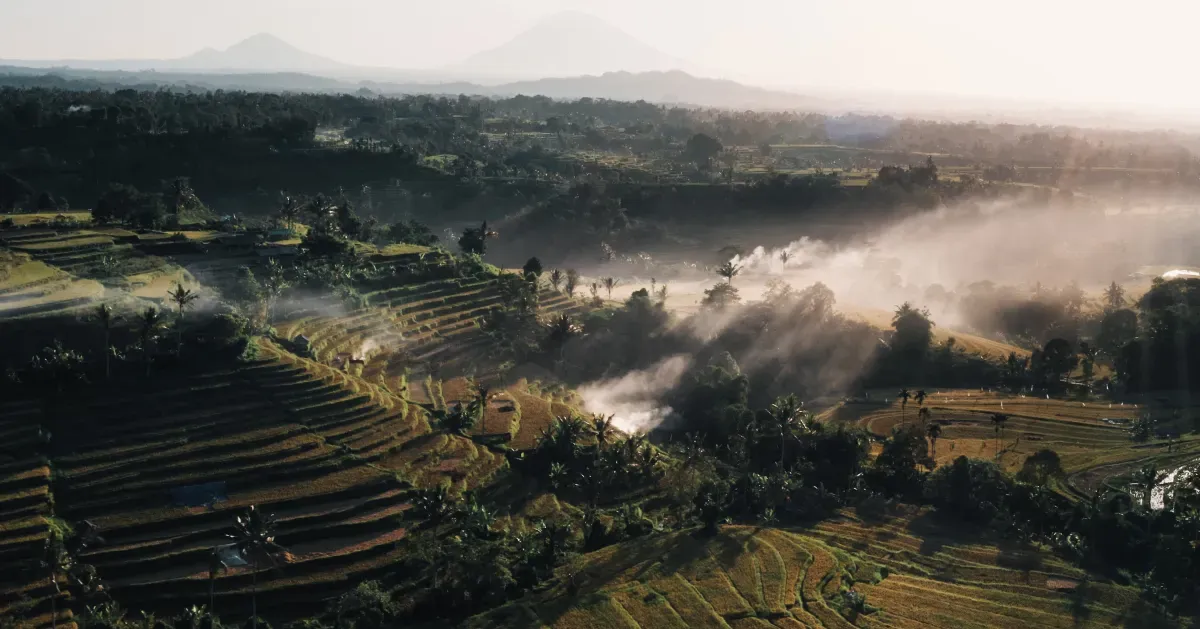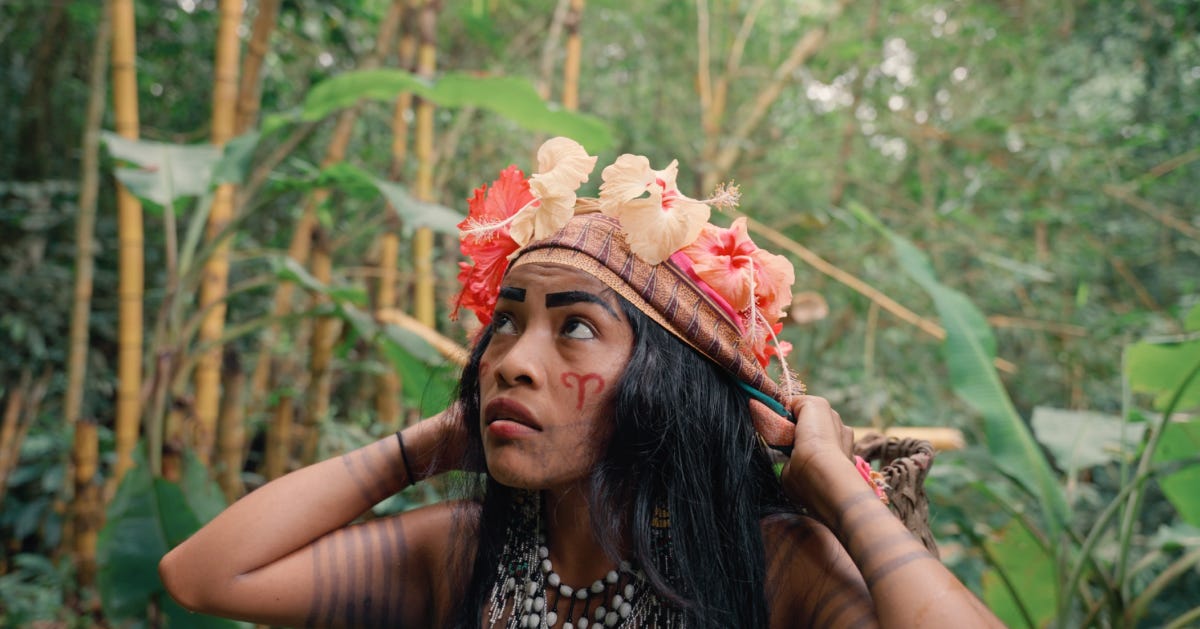OUT OF THIS WORLD

Quantum Temple with Federico Campagna
The eight billion inhabitants of our planet are on the verge of sharing the same, single world. If this sounds like an exciting prospect, then it is worth looking again at what a ‘world’ is, and why it is bad news when only one remains.
When we are born, we come to life without a world. We perceive indistinct sensations, coming at us like an avalanche. Slowly, out of this chaos, we carve the contours of a world: an organised space-time landscape, populated by objects clearly distinct from one another, each with its own name and its unique qualities. This tidy landscape in no way represents reality as it is. It is our attempt to make sense, through our imagination, of a reality that far exceeds our mind. It is a fictional cosmos (order), where we wish to project the story of a meaningful life. It is a metaphysical hypothesis that shields us from the horror of confronting the infinite, absurd reality that actually envelops us.
Every person needs to hold onto a ‘world’, as if it was true. But the moment we forget that a ‘world’ is always a fiction, and we mistake our own for the ‘one true world’, then we lose sight that reality was not designed to coincide with the limits of our imagination. We make a conceptual mistake, which brings about major existential consequences.
This is precisely what happens, when all the people on a planet end up believing in the same world. Propagated by centuries of colonialism and decades of globalisation, the Westernised ‘world’ is now in the position of supplanting any other hypothesis about the nature and the structure of reality. The cosmological orchestra of our planet is on the verge of turning into a monotonous solo.
This is not only a problem for the anthropologists, who attempt to preserve a record of the different cosmological beliefs. What is lost, when a cosmology disappears, is the concrete possibility for each of us — regardless of our geographical origin, or of the time when we live — to adopt its vision as our own, and to use it to re-found our understanding of reality. No matter how ancient, each of the ‘worlds’ that emerged throughout history still speaks to our own condition: it is an available solution for every creature who finds themselves alive in an infinite world, without knowledge of their origin or of their ultimate destination. Losing even one of them, means losing access to the future possibility of creating a different landscape around ourselves, and a different way of traversing our existence. Such a loss is more than historical: it impoverishes the eternal virtuality of our imagination.
When only one ‘world’ remains, and we mistake it for the only possible one, its landscape turns into a prison. Its limits become the limits of our imagination, and whatever is deemed impossible by the rules of its fiction, appears to us as truly impossible to achieve. From being the authors of our story of the ‘world’, we become its character.

This desertification is especially dramatic among the last remaining traditional societies, whose cosmologies are most distant from the one that today is hegemonic. Unable to compete economically and geopolitically with the Westernised powers, traditional cultures see their material and immaterial legacy going down a path of rapid extinction. What remains of their material production survives in the museum, where it is presented in isolation, accompanied by scant captions, disconnected from the cosmology from which it emerged. Although valuable as a relic, it has lost its ability to affect our way of understanding the mystery of reality and the meaning of our lives. Their rituals and practices, too, as they are experienced by those tourists who venture to meet their last communities, are today reduced to curiosities of local folklore. Without a deep understanding of their underlying cosmological visions, also the living expressions of traditional societies are turning into dead objects.
Reviving these cosmological visions and making them available for a serious engagement by all, is the mission of Quantum Temple. Through a form of education that is seldom found elsewhere, it invites its followers to discover ancient and traditional forms of art, craft, technology and community, with a view to understanding the extent to which they can contribute to the universal expansion of human imagination. By presenting traditional artifacts and practices as bearers of cosmological vision that remain valid today as ever, it offers a unique way of understanding the amazing potential for transformation contained in traditional cultural heritages across the world. By devolving its profits, through a scheme of reciprocity, to the communities that keep alive such traditions, Quantum Temple involves its own community of collectors in the quest to ensure their survival for the benefit of future generations.
The future, not the past, is the horizon of these traditions. And time is not their limit. Beyond time, in the realm where all possible worlds exist at once, stretch the roots of our imagination. It is to that place, that Quantum Temple wishes to lead us.